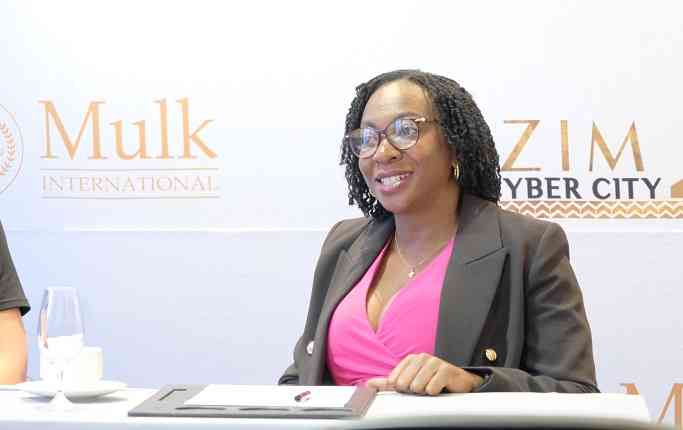'Old laws holding back real estate'

Source: NewsDay Zimbabwe
Author: Tafadzwa Mhlanga
Zimbabwe Cyber City chief executive officer (CEO) Tendayi Hlupo-Mamvura noted that there was need to revolutionise legislation around land and infrastructure development.
ZIMBABWE's leading real estate developers have voiced concerns over what they described as 'outdated legislation' hindering the modernisation of infrastructure and land development in the country.
This comes at a time when significant portions of the country's ageing infrastructure have been crumbling.
Some estimates say over 500 buildings in Harare have been condemned as unsafe due to poor ventilation, lack of emergency exits, and general decay of support structures.
Several buildings in major cities across the country date back to the colonial era and are now posing an increasing risk to the general public.
Presenting on a panel discussion at the CEO Africa Roundtable's 10th annual conference, in Victoria Falls this week, Zimbabwe Cyber City chief executive officer (CEO) Tendayi Hlupo-Mamvura noted that there was need to revolutionise legislation around land and infrastructure development.
"Building a sustainable city is a revolutionary idea that requires a new approach to legislation," Hlupo-Mamvura said.
"Traditional methods of upgrading laws and legislation are no longer effective, as they cannot keep pace with new technologies and sustainability demands," she added.
"In Zimbabwe, special economic zones are defined as export processing zones, which smart cities do not qualify for. Furthermore, facilitators responsible for legislative change lack understanding of the requirements."
She also noted that the current legislation did not provide incentives to support modernisation in the country.
"We face challenges in building a smart city, as current legislation does not provide incentives or instruments to support it. The legislation is outdated, and facilitators ask what I am exporting or manufacturing, not understanding that value lies in innovation, not physical exports," Hlupo-Mamvura said.
"The biggest challenge is legislation. Traditional methods are no longer relevant, and we need a framework that allows for flexibility and adaptability to new technologies. We cannot afford to spend months debating legislation that may become redundant by the time it is implemented."
She said there was need for a framework that enables people to contribute ideas and technologies that enable modernisation and digital businesses.
"This framework should evaluate safety, protection, and delivery, quickly. The current legislation, such as the 1977 Rural-Urban Town Planning Act, is outdated, and regulators use discretion, creating uncertainty," Hlupo-Mamvura said.
"This challenge applies across industries, not just real estate. We need legislation that supports innovation and digital businesses. Currently, we are stuck between the desire to move forward and outdated legislation that holds us back. We need a new approach to legislation that enables us to build a sustainable and innovative future."
Modernising infrastructure development, she added, would reduce construction costs as archaic ways of construction were unsustainable.
"The traditional way of building is not only unsustainable but also costly. The technology we are using reduces carbon emissions by 40% from the building, and precast fabrication significantly reduces material and construction time costs," Hlupo-Mamvura said.
"However, legislative issues keep our construction costs high, making it cheaper to import materials than use locally manufactured ones, which hurts our industry."
Addressing the same conference, WestProp Holdings Limited CEO Ken Sharpe highlighted the importance of modernising infrastructure and updating legislation, taking action and collective effort in building the country.
He called for combined efforts to using Artificial Intelligence (AI) to modernise the infrastructure that was built during the colonial era.
"I can confirm that the process of getting approval takes a very long time. For us it was 15 years to get approval for the multimillion (dollar) project that we are implementing now as West Properties. So, I agree with you that we do have outdated laws that need to be reformed. But, I also think that we need to start now. We cannot wait for the laws to catch up," Sharpe said.
"We need to get on the bus and build our country together. The bus has definitely not left... Technology is continually evolving, iterations are made by developers every second of every day of every year, and all the technology companies around the world. So, what we are seeing today with the imminent introduction of AI, I think, is still at play in the developed world. And certainly, in Zimbabwe, our time is coming."
